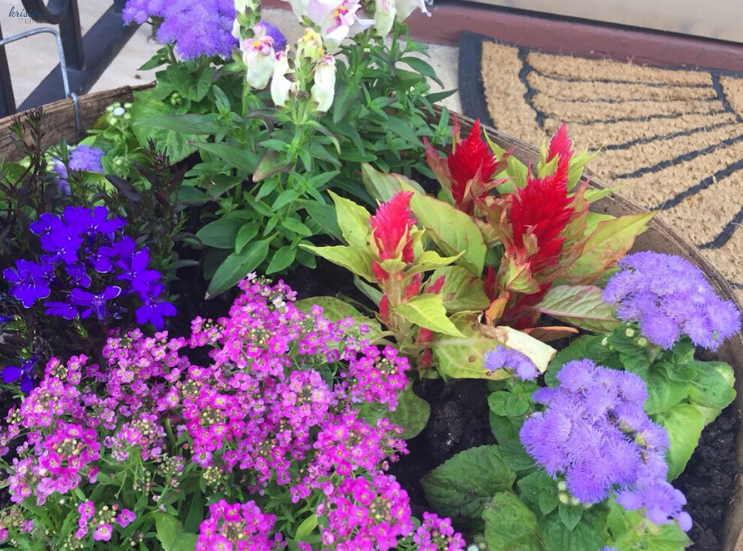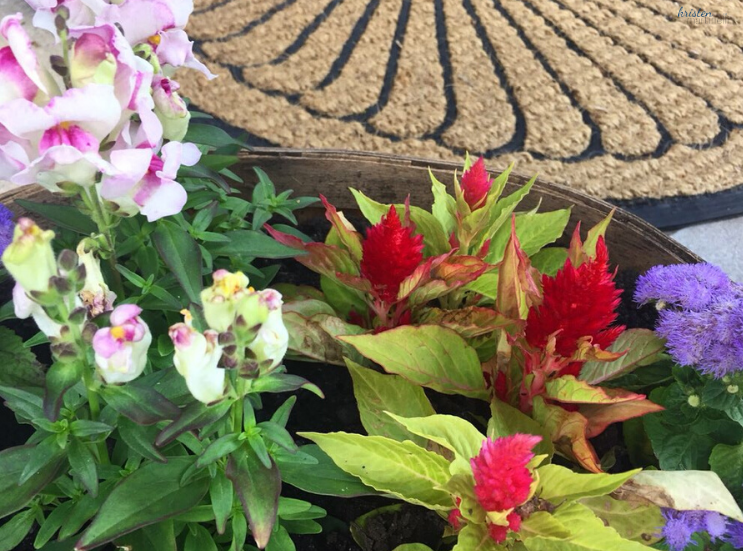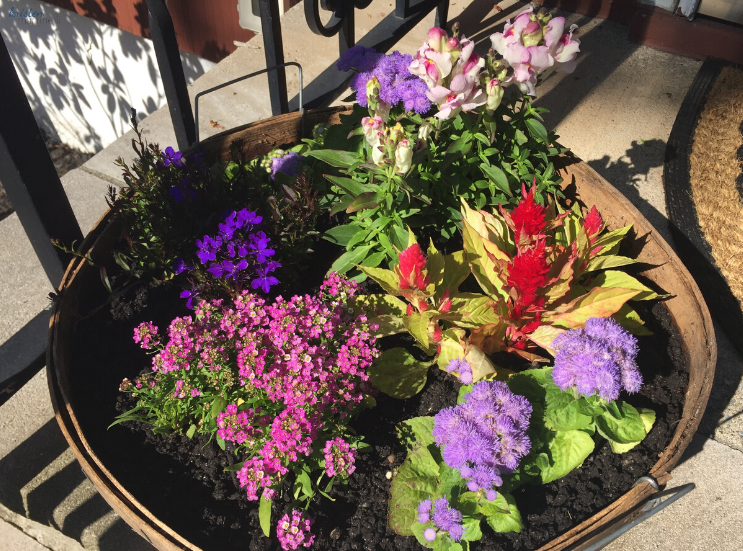Why Foodies Should Advocate for Bees
Published February 10, 2020
I learned to garden from an early age. My dad’s house had decorative flower gardens in memory of my paternal grandfather, but we also had a plot for fresh vegetables and herbs.
Over the years I learned from my neighbor about composting and wildflowers. In college I studied works by Michael Pollan and the correlation between health and diet.
I don’t always share my personal interests around food advocacy and sustainability, but this week I wanted to talk about bees, and their impact on the food industry. Plus, some helpful tips as spring approaches for creating a space for bees to thrive in.
Let’s go back to 2016
Montclair State University’s Green Team’s Initiative was my first formal internship. Students of all majors across New Jersey were put into teams and assigned a company’s green project.
I was the first and only English major of the cohort, partnered with four science majors to work with Cox Printers in Linden, NJ. We spent three months executing deliverables like biodegradable packaging solutions and green roof proposals to reduce heating/cooling costs (while being bee-friendly).
It was during that time, standing on the black-tar roof of Cox Printers, that I learned about beekeeping.
Cox Printers used the large flat space of their roof to house two honeybee hives. We learned about the color and flavor of honey, and how it is influenced by the surrounding area.
We even watched as the beekeeper removed a panel to sample honey. It was a delicious and fascinating experience. And thus, ensued my interest with bees.
Why do bees matter?
In 2018, research showed that “38% of the land on Earth is used for food production. The rest is either is either unsuitable for cultivation because of soil, climate topography, or urban development, or it's forest land.”
Today there are 7.8 billion people on Earth. By 2050, the UN estimates we will need to produce 70% more food to meet global demand.
So how do we feed billions of people with limited land?
Meet the pollinators.
Plants and flowers blossom because they are pollinated by bees and other pollinators like butterflies, moths, birds, bats, and beetles (to name a few).
According to the USDA, "Bees of all sorts pollinate 75% of the fruits, nuts, and vegetables grown in the Unites States, and one out of every four bites of food people take is courtesy of bee pollination.” Avocados, broccoli, cherries, peaches, blueberries, and almonds are a few of the foods we can thank pollinators for.
Pollinators like bees can increase farmer’s crop yield 25%, which contributes to the world’s food security. While plants can be pollinated by hand, the yield is not as fruitful as with natural pollinators like bees.
Besides growing and maintaining the world’s food supply, “Bees aid in the production of alfalfa that is used for feed within the beef and dairy industries. Bee venom has medicinal properties and has been used for treating arthritis, multiple sclerosis, fibromyalgia, cancer, epilepsy, depression, and more.”
It’s obvious to point out that a dying or extinct pollinator population would limit and destroy our access to ingredients we’ve assimilated to our everyday lives.
If bees are essential for the future, then why are they dying?
Climate change (higher temperatures, drought, floods, etc.), loss of habitat, use of pesticides, and disease contributes to pollinator death and extinction.
You might’ve remembered the press from last year, about the number of bee deaths. “38% of beekeepers’ colonies died between October 1, 2018, and April 1, 2019,” the largest cited number for a winter period.
Neonicotinoids are cited as the leading pesticide that harms bees. The nectar and pollen of plants treated with neonicotinoid insecticides can impact bees overtime. For example, “They may impact some bees’ ability to foraging for nectar, learn and remember where flowers are located, and possibly impair their ability to find their way home to the nest or hive.”
What can you do to help bees and other pollinators?
Plant Bee-Friendly Gardens
Whether you have a large backyard or a small balcony in the city, any size bundle of greenery will do. Bees need chemically-free bundles of flowers and plants to forage from.
Some everyday blooms and herbs to support bees (and use for decoration and cooking), include:
Rosemary, mint, chives, sage, and oregano
Poppies, lavender, lilacs, pansies, and marigolds
Bees also collect sap from trees and leaves
Planting herbs and flowers year-round give bees a variety of seasons to thrive in.
This is an example of a reclaimed container I used for my front porch to add some extra flowers for bees to enjoy.
Avoid Chemicals and Pesticides
Only apply pesticides and chemicals to plants suffering from insects. This prevents any unnecessary contact for bees who land on plants.
If you truly need to apply pesticides — for example, in your home garden — it’s recommended to apply them in the evening, when bees are not foraging.
DIY a Bee Bath or Bee Condo
Yes, there’s such a thing as a “bee house” or “bee condo.” It’s an outdoor structure similar to a bird house that has various sized shapes cut into the wood. Bees can burrow and make a home in these structures.
Image Source: ECO-U
Bee baths are like bird baths. They’re a way to use stones and water to make it easy for bees to get a drink without getting stuck in water.
Adding these structures to your backyard, help bees that are traveling back and forth to their hive, to have a place to rest.
Advocate and Educate
The Honeybee Conservatory is a global group of beekeepers and advocates, educating the community about bees. They have workshops, fundraisers, ambassadorships, and sponsor-a-hive opportunities.
You can even learn how to host your own hive and become a beekeeper.
What initiatives are you passionate about?
Do you already take steps to help the bees? Do you have a project that you advocate for? Tell me about it in the comments below, I’d love to hear what inspires you.











